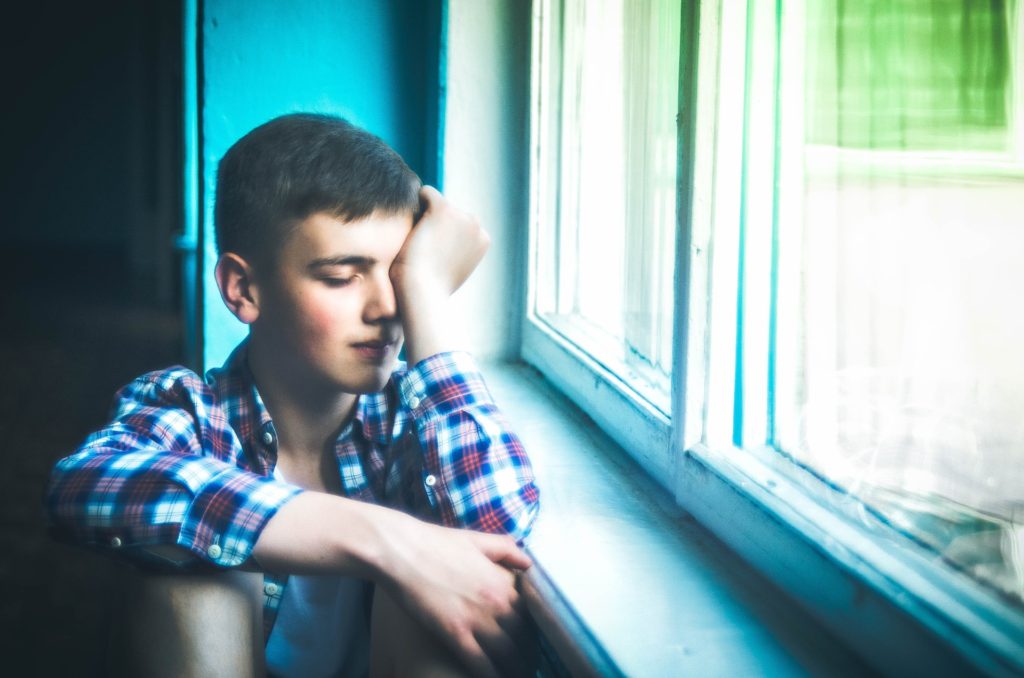
“We’re more depressed, we’re lonelier, and we’re just exhausted by this,” Dr. David Sbarra told Axios this week. Sbarra is a clinical psychologist and professor at the University of Arizona. He is concerned by how much people have on their plate, trying to balance homeschooling, rising unemployment, economic concerns and their health.”COVID fatigue is a shorthand way of talking about a constellation of challenges that people are facing that are leading to just an overall sense of exhaustion,” Sbarra says.
A UC Davis psychology professor agrees. Dr. Kaye Hermanson works in the Department of Physical Medicine and Rehabilitation. “We know there are two kinds of stress that have long-term effects on our mental well-being and physical health – intense stress and prolonged stress,” Hermanson says. “We have both. We have unknowns in every part of our lives. At the same time, a lot of the things we generally do to cope, the things we enjoy and that give life meaning, have changed or been put off limits.”
Dr. Hermanson says that even those that have a generally positive demeanor are being affected. “Eventually, that heroic spirit wears thin as the difficulties and stress build up. That’s when we hit the disillusionment phase,” Hermanson says. “We lose our optimism and start to have negative or angry reactions. We ask, ‘What are they doing to fix this? How long will this last?’”
All of this can lead to another condition that has come about during COVID-19, known as ‘coronasomnia.’ Dr Philip Cheng is a clinical psychologist and research scientist at the Sleep Disorders Center at Henry Ford Health System. “Everything that’s going on right now can make people more vulnerable to insomnia,” Dr Cheng says in a recent blog post. “It’s a vicious cycle: when you lose sleep, your emotions can feel more intense. Your ability to regulate emotions can also become diminished, so existing stressors become more stressful, and the ability to calm down becomes more impaired.”
Experts are concerned that there are few medical professionals that are trained in cognitive-behavioral therapy that can adequately treat ‘coronasomnia,’ and that we could see an elevated risk of high blood pressure and depression as a consequence. They also warn that COVID-19 is different from natural catastrophes and terrorist events that are known to cause shorter-term sleep challenges because the pandemic is ongoing. “As you become more stress-sensitive, your own thoughts become a trigger for stress,” Dr. Cheng says. He provides the following suggestions to get restful seven to nine hours sleep:
1. Stick to a routine. “Make sure you have a regular schedule and a stick to your regular wake time,” says Dr. Cheng. “Just because you’re working from home or your appointments are canceled doesn’t mean you should take liberties with your sleep.”
2. Schedule in wind-down time. Allocate half an hour to an hour before bed as wind-down time. That means relaxing in a room with dim lighting and engaging in a non-stimulating activity, like watching re-runs of your favorite old shows, doing crossword puzzles, or reading a good, old-fashioned paper book.
3. Stay away from electronics. Another activity that’s not allowed during wind-down time? Mindlessly scrolling through your phone or watching shows on your laptop. There’s evidence that blue light from electronics can impact your circadian rhythm, he says, keeping you wide awake when you’re supposed to be feeling tired.
4. Create the ideal sleeping environment. A dark room and a room temperature somewhere between 65 and 70 degrees are the perfect sleeping conditions, Dr. Cheng says, as temperatures on the cooler side tend to be best for restful sleep. And on that note, don’t take a really hot bath before bed, as it can increase your core body temperature and make it difficult to sleep, he adds.
5. Exercise in the afternoon. Because cardio also raises your core body temperature, Dr. Cheng advises against exercising within three hours before bedtime. Afternoon exercise, however, can be beneficial for sleep. “Even more so than in the morning, there’s evidence that exercising in the late afternoon is helpful for deep sleep,” he says.
6. Don’t have a large meal right before bed. But if you’re prone to waking up because you’re hungry, having a light snack won’t hurt, like a small portion of crackers, fruit or cheese.
7. Limit your caffeine and alcohol intake. “Caffeine can stay in the body for eight hours, which is longer than most people think,” says Dr. Cheng. “I cut off my caffeine intake around 2 or 3 p.m.” Also: while alcohol can make you initially sleepy, it can wake you up as it becomes metabolized in the middle of the night. Avoid it within three hours of bedtime.
8. If you do wake up in the middle of the night, get out of bed. Go to a different room that’s comfortable and quiet, and engage in whatever activity you’d be doing during wind-down time—things that occupy your mind in a pleasant way but that aren’t too stimulating. “The goal is to make you feel sleepy again,” Dr. Cheng explains. “Often times, the temptation is to do dishes or fold laundry, but you don’t want to make this time super productive. That will subconsciously reinforce the notion that you’ll be more productive if you wake up in the middle of the night.”
9. When you get back into bed, do not look at your clock. Set the alarm for your usual waking hours and then turn the clock around. Watching the minutes tick by can become an additional stressor, further inhibiting your ability to sleep. “Find a way to destress and sleep will come to you,” says Dr. Cheng. “One of the things we tell patients is that you can’t catch sleep, you have to let sleep catch you.”
